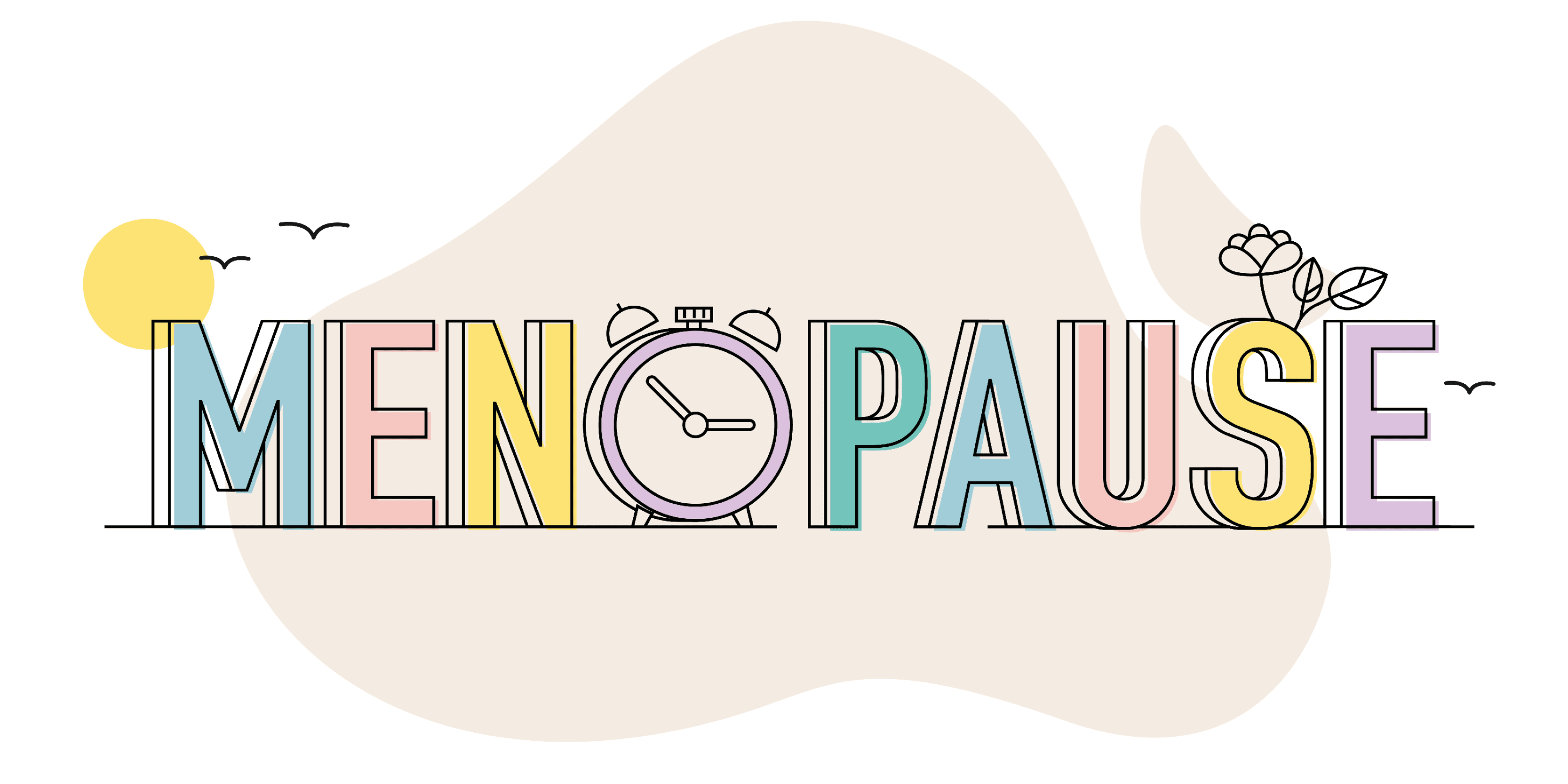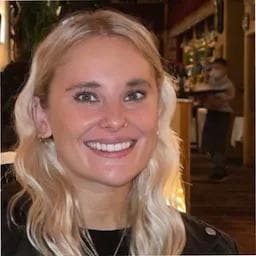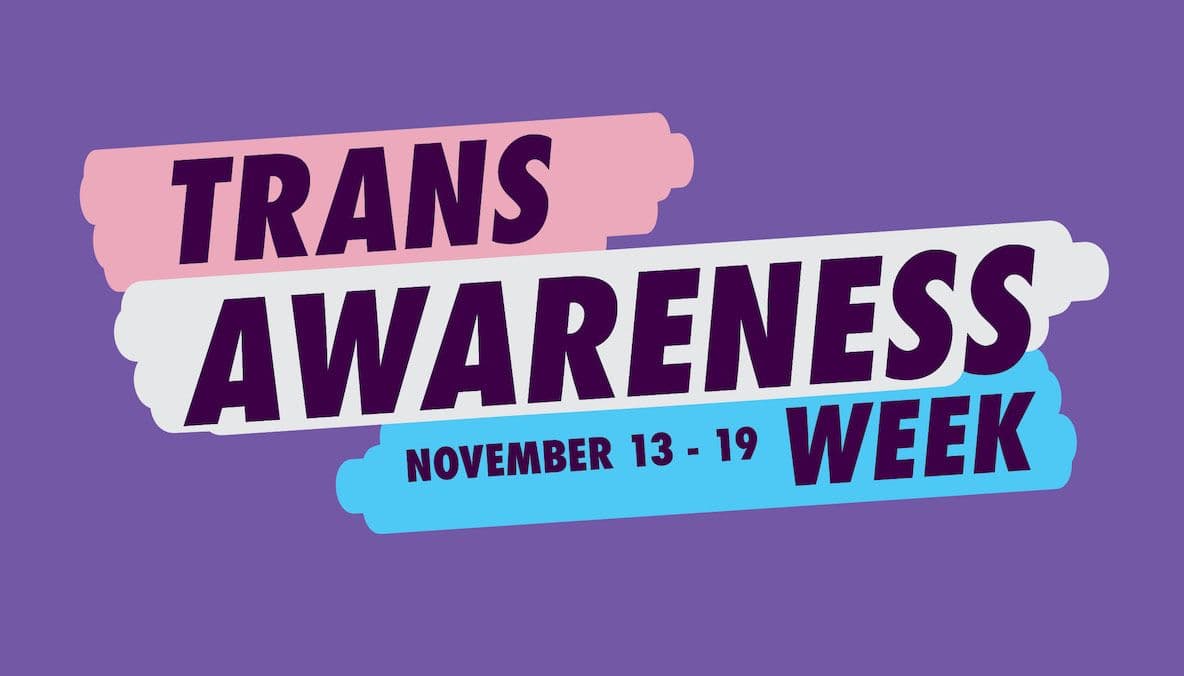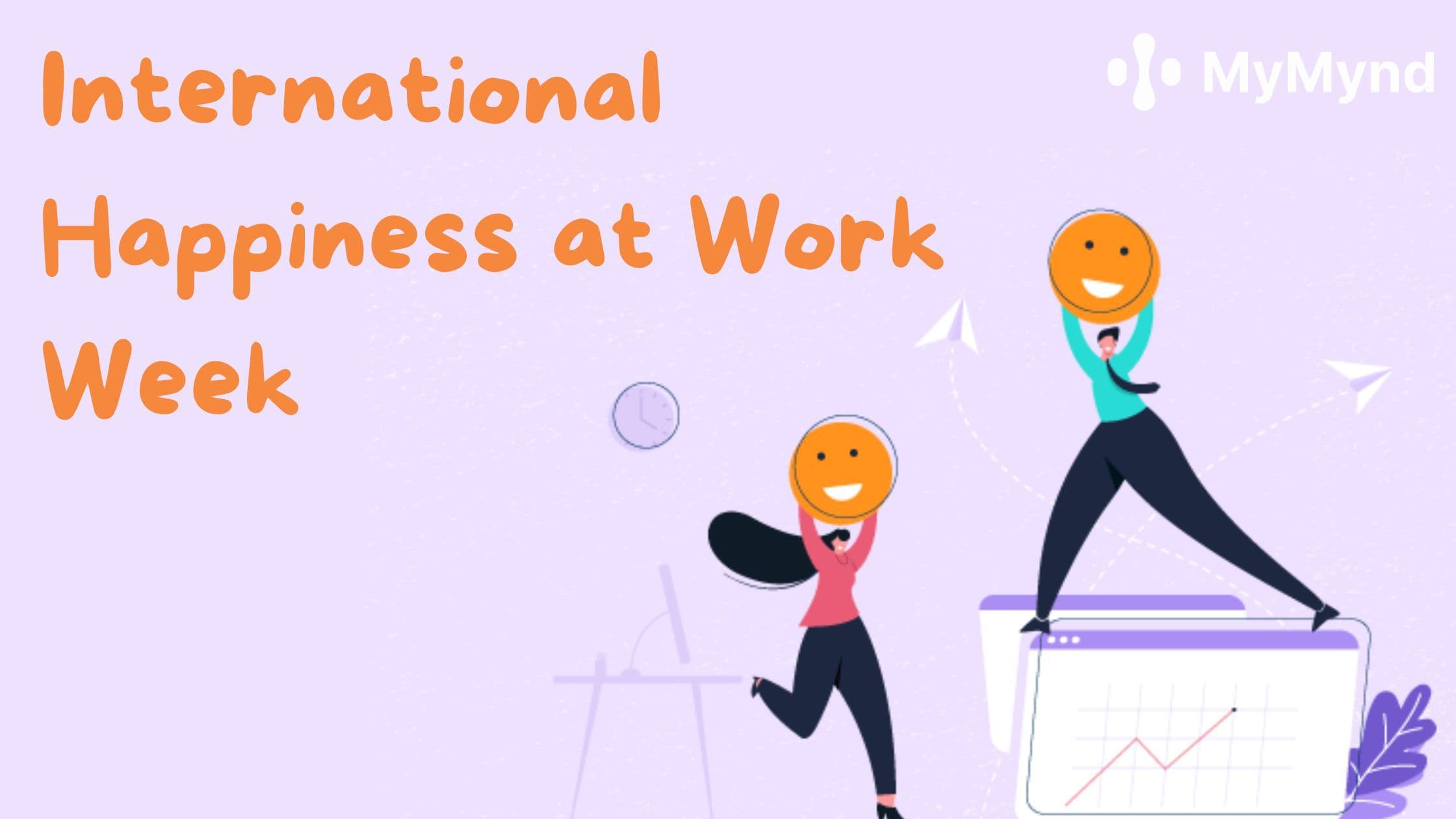...
...
...
...
...

We speak to three inspiring women about their real experience of the menopause, and advice they would give to others based on their experience.

Nia Griffiths
Oct 18th, 2023
Menopause. Often seen as a daunting phase in life for those who menstruate, it can also be a time of transformation, growth, and resilience. World Menopause Day, celebrated annually on October 18th, gives us a space to raise awareness about menopause and the real, and sometimes overwhelming, impact it has on those who experience it.
For World Menopause Day 2023, we wanted to shed light on the menopause as an experience and the impact it has on people who menstruate. To do so we interviewed three inspiring women who have been through the menopause, on their experience from the beginning. The experiences below not only highlight the phenomenal strength women/people who menstruate quietly showcase during this phase of life, but also the importance and strength of female friendship during a collectively difficult experience. To keep anonymity, we have called the women A, B and C.
A: I first realised I was entering the menopause when I was 50. I had the classic symptoms, monthly pains but erratic periods, hot flushes, disrupted sleep, brain fog and weight gain. My blood pressure went from being consistently low, to just below the borderline for high. I also had pins and needles in my fingers which I later came to associate with the menopause, but which was alarming at first.
B: Change in mood, had more mood swings and was easily irritated. That was it really, no changes physically, just more small changes to do with my moods.
C: Periods becoming erratic then after a year, stopping altogether aged 50
A: Weight gain was a specific challenge for me personally. I had been pretty much the same weight since I was 18 and now, I was suddenly heavier, the extra weight distributed entirely around my stomach area. My clothes didn’t fit well anymore and the change in my body did have a psychological impact on me.
B: During menopause I experienced hot flushes in the early morning, and would wake feeling a sudden hotness. I didn’t sweat much though. I felt that my hair was thinning and that I was putting on weight which made me feel a loss in confidence.
C: Aches and pains, especially in my hips, which turns out to be arthritis.
A: I didn’t seek medical advice.
B: I didn't seek medical advice.
C: Yes, went to female GP to get HRT (Hormone Replacement Therapy). I was given it without any problem, and it was transformative for my menopause.
A: Hot flushes were discomforting, particularly at work when you find yourself in a conversation and you are aware of getting hotter and hotter and redder and redder.
B: It’s made me lose a bit of confidence work wise. Before I was more assertive and confident but since getting menopause I felt less assured of myself. Also I experienced a loss of libido.
C: I actually feel great - used to get quite bad PMS (pre-menstrual syndrome), so being on an even keel is lovely plus no tampons, bleeding etc.
A: The menopause made daily life and work uncomfortable, but I don’t think it affected my performance. In some ways it strengthened my personal relationships as several of my friends were going through the menopause as well, so we were able to support each other.
B: Going for walks to get some fresh air and try to avoid stressful situations.
C: Yoga, vitamin and omega 3 supplements for arthritis.
A: The self-care practice I found most helpful was walking in the fresh air. It helped with the physical and the psychological symptoms.
B: It impacted my confidence and found it harder to make decisions. I don’t think I found a way to cope with this but since starting in therapy this has helped to address confidence issues.
C: I feel better than I did before menopause!
A: I always had PMT where I would become teary and anxious, but whereas this would disappear once my period started, with the menopause the symptoms remained, especially the anxiety. My workplace has significant resources to help with anxiety and I have accessed these.
Since I have gone through the menopause, my workplace has now set up a dedicated menopause support page on their wellbeing site and runs regular menopause cafés where women can get support. This wasn’t available for me, but I would have found it useful. My main support group has been my friends who were/are going through the menopause.
B: None, I found talking with my sisters and friends who had been through it most supportive.
C: Talking with my friends and listening to podcasts - especially Dr Louise Newson podcast. This made me feel less alone in the experience.
A: I’m out of the menopause now, but the symptoms of anxiety remain and this can affect my relationship with my partner, who finds it difficult to deal with at times.
B: It didn’t have a significant impact of relationships with family or friends, as thankfully my experiences were not too bad.
C: No bad impacts. I’m less grumpy than I was pre-menopause.
A: I would advise women who are approaching or going through the menopause to look at the NHS - Menopause website for information.
B: To seek help and don’t sit there thinking you are the only one experiencing it, if it’s effecting relationships and your outlook on life. It always help to talk with others who can understand what you are going through.
C: Try HRT, eat a healthy diet and keep on exercising - all the usual!
A: One misconception I’ve encountered is that all women experience the menopause in the same way. Also, because it is the menopause, the symptoms and effects are not always taken seriously.
B: Many workplaces now provide support for women going through menopause, which is something that wasn’t previously available when I was going through menopause. I think this is fantastic as up until recently many woman had to go through menopause with difficulties of balancing work. It would be great for more workplaces to offer this support to help woman with going through this stage of life.
C: Seek help if you’re suffering - seeing and speaking with a female GP worked for me. Remember you are not alone. Speak with friends, and seek support from work if your symptoms are getting difficult to manage.
These inspiring women's stories reflect the diversity of menopausal experiences. Each womans journey through this phase of life is unique, with varying symptoms and coping mechanisms. The challenges faced are multifaceted, from physical changes like weight gain and aches to emotional and psychological impacts such as mood swings, loss of confidence, and anxiety.
While some of our women sought medical advice and treatment, others did not, highlighting the importance of personalised choices when managing your symptoms. Support from friends and resources like therapy and workplace initiatives can be incredibly beneficial in navigating this transitional period.
The impact on daily life and relationships is also individualised, with some experiencing discomfort and difficulty and others finding that their bonds remained strong. It is clear that there is no one-size-fits-all approach to menopause, and understanding, support, and self-care practices play a pivotal role in managing its effects.
The advice shared by these women emphasises the importance of seeking help, whether through medical professionals or support networks, and dispels misconceptions about the uniformity of menopausal experiences. Women should be encouraged to explore their options, maintain a healthy lifestyle, and, most importantly, feel empowered to address the unique challenges that menopause presents. Most of all, let's try and break the taboo and encourage open conversation with everyone, enabling more discussions and more support options for anyone struggling with their menopause.

This Transgender awareness week, we want to take time to think about the challenges the transgender community face, as well as ways we can all be better allies.
Nia Griffiths
Nov 13th, 2023
Living with Social Anxiety: Practical Advice for Everyday Life
Keeva Galway
Aug 5th, 2024

Why is Happiness at Work so important and how can we achieve it?
Nia Griffiths
Sep 23rd, 2024